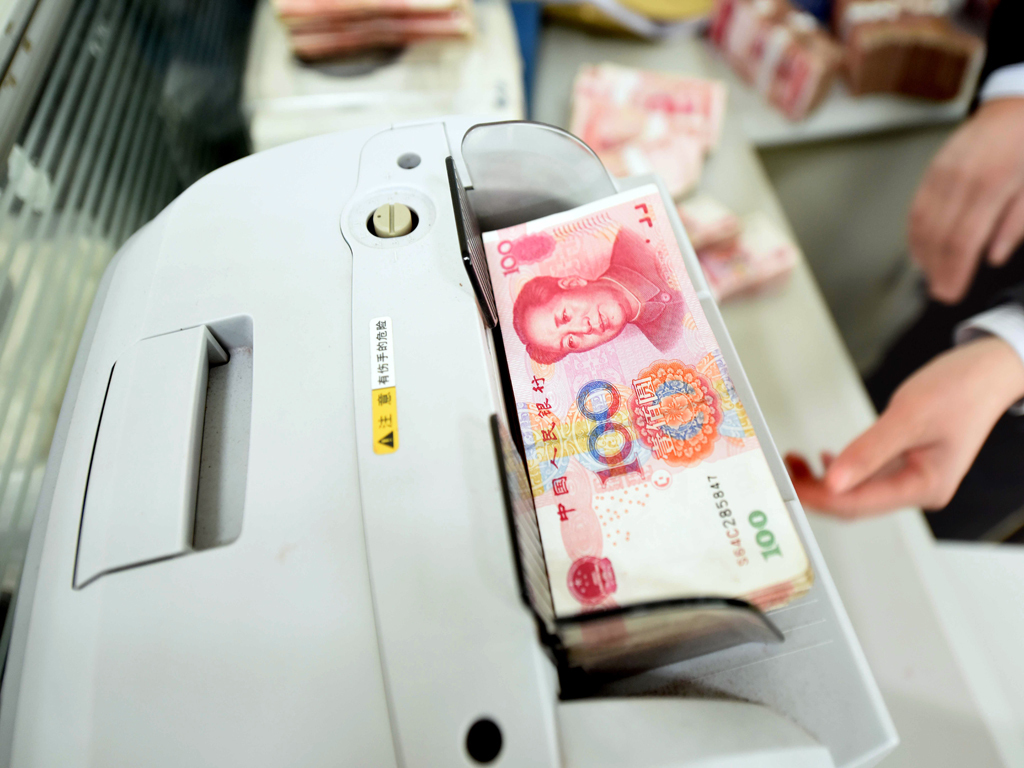 LONDON: China’s yuan hit a 14-month low on Friday and was set for its longest weekly losing streak since 1994, hampered by the ongoing trade dispute with the United States, while the Turkish lira hit a record low.
LONDON: China’s yuan hit a 14-month low on Friday and was set for its longest weekly losing streak since 1994, hampered by the ongoing trade dispute with the United States, while the Turkish lira hit a record low.
The renminbi was down 0.5 percent to its lowest since May 2017 and down almost 1 percent for the week as China and the United States continued to threaten tit-for-tat measures over trade, which investors fear will crimp global growth.
The yuan is set for its eighth weekly loss, its longest losing streak since the market exchange rate was unified in 1994. Chinese mainland shares tumbled 1.6 percent on the day and almost 6 percent for the week, their worst weekly fall since February.
The United States has proposed a higher 25 percent tariff on $200 billion of Chinese imports while China has threatened to retaliate if the US acts on this threat.
“The slide in the renminbi may be a response by policymakers to cushion the blow,” said William Jackson, senior EM economist at Capital Economics, adding that China was more in focus now that the United States had softened its stance towards Europe and Mexico.
Disappointing Chinese services sector data added to the subdued sentiment, with a Caixin survey showing the sector expanded at the weakest in four months in July.
Overall, MSCI’s benchmark emerging stocks index gained a meagre 0.1 percent and was set to end the week down over 2 percent.
Hungary was among the better performers, up 0.9 percent, while Indian shares rose 0.8 percent after services activity rose to a 21-month high in July. South Korea stocks also posted 0.8 percent gains.
But currencies struggled in the face of a stronger dollar.
Turkey’s lira fell as much as 0.6 percent, pushing through 5.1 per dollar, before retracing some of these losses following inflation data that was not quite as bad as feared.
However, year-on-year inflation still hit 15.85 percent in July, its highest in more than 14 years as food prices surged, reflecting the impact of a currency crisis the central bank has been unable to contain.
“The big picture is that inflation has sky-rocketed and while you can pin some of that on weakness in the currency there is also a more fundamental problem as inflation expectations have become unanachored as the central bank has kept policy too loose for too long,” said Jackson.
Turkey’s finance minister, Berat Albayrak, reiterated comments that inflation would come down.
The lira is still down around 4.7 percent for the week in the wake of US sanctions on two Turkish ministers, in a dispute over the trial of a US pastor in Turkey who is accused of backing terrorism.
US and Turkish foreign ministers have agreed to keep trying to resolve the issues between the two countries.
Russia’s rouble fell 0.3 percent, trading near two-week lows hit on Thursday and down over 1 percent for the week.
The leg lower followed the introduction of a Russian sanctions “bill from hell” by US senators in an attempt to punish Moscow over interference in US elections, plus its activities in Syria and Ukraine.
The bill includes restrictions on new Russian sovereign debt transactions, but Russian dollar bonds were slightly firmer after selling off on Thursday.
The South African rand also looked set to end the week down around 2 percent after investors were rattled by plans for land expropriation without compensation. South African private sector activity contracted for the first time in six months in July.
Source: Brecorder
























